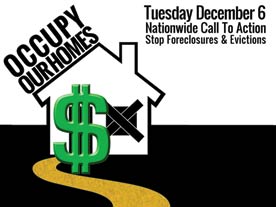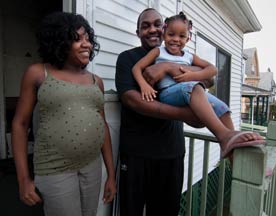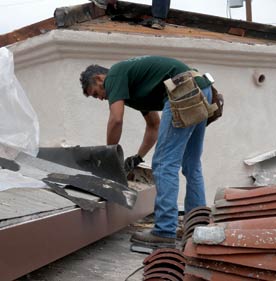
Stephen Boyle – Fuzzytek Occupy Detroit
The Occupy movement’s National Day of Action to Stop Foreclosures on Dec. 6 and the increased focus on housing issues that it launched have given us a glimpse of just how effective the Occupy movement can be beyond its signature town square-style occupations. In Atlanta, an Iraq War veteran avoided foreclosure and eviction thanks to action by Occupy Atlanta. A successful eviction blockade from Occupy Minneapolis ended with protestors calling after the departing law enforcement “Call us when you face foreclosure. We’ll be there for you!” Other places, Occupiers swelled the ranks of existing home defense campaigns (see page 44).
Stretching across more than 20 U.S. cities, a new consortium called Occupy Our Homes is continuing to organize actions in neighborhoods where evictions, vacant properties, and foreclosures have had damaging effects. Spearheaded by local Occupations and including Alliance of Californians for Community Empowerment, Take Back the Land, Causa Justa :: Just Cause, The New Bottom Line (see related article in SF Fall 2011), and others, the campaign seeks to build on the energy of Occupy Wall Street and expand the movement’s advocacy portfolio by putting faces on a crisis that, at least nationally, is often characterized numerically or in abstract terms.
Dave Snyder of Jewish Community Action in Minneapolis told The UpTake, a local citizen-run news service, that the Occupy movement had upped the ante for existing faith-led coalitions fighting for bank accountability. Snyder is an organizer of the interfaith Northside Community Reinvestment Coalition, which advocates with lenders on behalf of specific homeowners in foreclosure. While they may differ slightly on tactics, he said, Occupy has “opened up political space to make broader demands. It’s a critical movement [and] we’re grateful that they’re putting their bodies on the line to make the space for us to articulate these demands.”




Comments